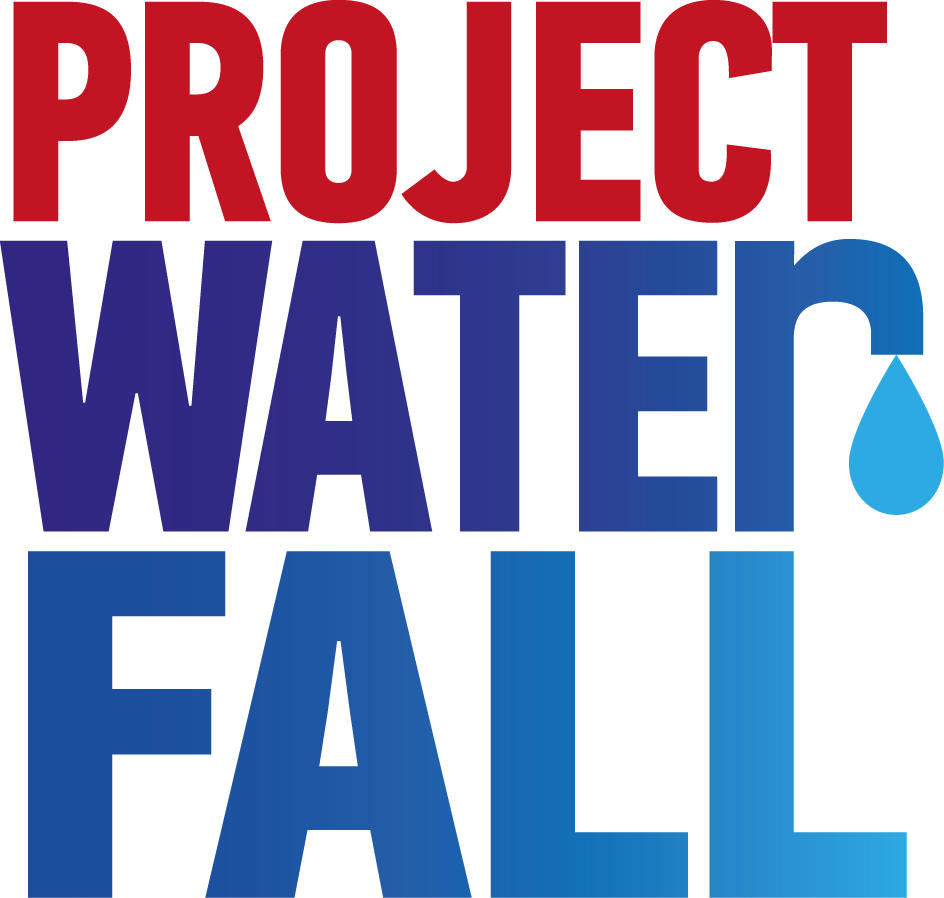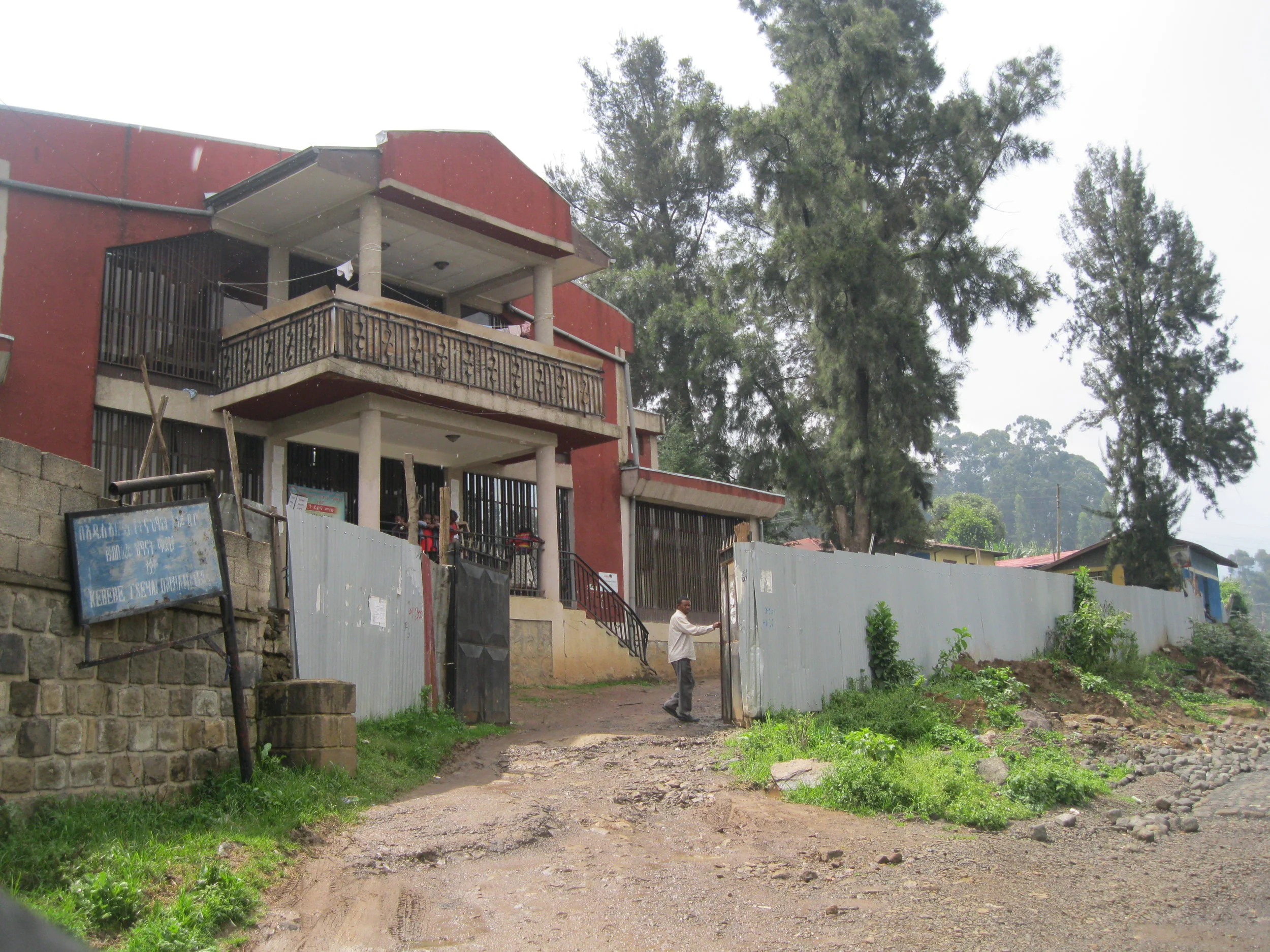Last week, our intern Zofia visited two of our projects in Addis Ababa: the Kibebe Tsehay orphanage and the Ketchune Girls Orphanage.
Here are her stories from the field!
Day One: Arriving in Addis Ababa
Addis Ababa is a vast metropolis, with wide muddy roads and buildings, the majority of which were old and run down. As with any developing environment, the city faces many challenges. Lots of children were running around in ripped shirts and worn shorts while some women wore high heels and tight jeans to trudge through the rainy seasons mud. The thought that there was a lack of water was shocking as there was mud everywhere due to the rain pouring for hours on end but it would all dry up within an hour. As there are no public toilets, lots of the public (mostly males) were urinating out in the open, setting a low standard for sanitation. The general public however seemed to go about life normally giving off a relaxed, comfortable vibe which was friendly and welcoming.
Dawit, the Splash director in Addis, came to take my family (mother, father and sister) and I out for coffee, which is a big part of Ethiopian culture and is the best coffee I have ever drank; and would advise all coffee lovers to choose Ethiopia as their next holiday destination. It was amazing to meet Dawit and learn about his childhood growing up as an orphan, which was one of the reasons he decided to go into charity work himself so he could help and educate people, especially orphans like himself. He explained that the biggest problem is knowledge, or the lack of in many people’s cases. Lots of people don’t see sanitation as an actual problem and so drinking water and hand washing water often go together which can lead to otherwise preventable illnesses. In lots of cases, hands are never washed or if they are the water is contaminated and so is useless either way. More radical cases have shown people believe that by not going to the toilet they won’t “lose any water” and so will stop themselves from urinating in the hopes of staying hydrated, which can lead to serious infections. The most surprising thing I learnt I learnt from Dawit however, is how culture and religion affect how people think about water. For example, if a priest has blessed a pool of water, people will believe it is safe to drink even if it is just a puddle in the middle of the road. Dawit feels these are the hardest situations in which to educate, as to them their beliefs trump science every time no matter what the evidence you put forward; so for him to be able to educate children from a young age is really important and will hopefully make a big difference while not interfering with culture and religion.
Dawit had recently visited the Ketchene girls orphanage and given them sanitation and clean drinking water talks so I was especially excited to go and meet the older girls in the next couple of days. Dawit explained that both the Kibebe Tsehay orphanage and the Ketchene orphanage are government orphanages and so we wouldn’t be able to take photos of the children but I was still excited to go and meet everyone and see first-hand how the clean water is hopefully changing their daily lives.
Day two: Kibebe Tsehay Orphanage (boys and girls aged 0-8)
Dawit drove my family and I to the orphanage, bringing with us an enormous bag of stationary which was donated to the orphanage by a CEO at my mother’s work. We arrived at a large gate with high walls surrounding the orphanage, which felt very quiet compared to the rest of Addis. Once we were inside the compound however, we were greeted by lots of giggling children running around and playing. Mambura, the orphanage director, was a kind and welcoming woman while being professional, invited us into her office before giving us a tour. Essentially we could take photos of whatever we wanted apart from the children, as the orphanage is owned by the government and in the past someone had used photos of the children as a scam to make money!
The first room had bunkbeds to accommodate eighteen children, this was a girls’ room. The second room was similar but for boys. While the rooms were large, the beds were all squished together as the orphanage is taking on an extra 42 children over their 150 capacity. Mambura explained that at least 95% of the children are abandoned and the orphanage works to try and reunite children with their families but that can be very challenging. Fortunately, around 100 children are adopted domestically every year.
We were then shown the baby room which had around 20 cots with one or two babies each. The really young babies, no more than a few months old, were wrapped up or being coddled by workers but we were allowed to pick up the babies if they wanted us too. While some edged away from us shyly, most of the babies were more than happy to be picked up and played with. Mambura and the other carers told us how the number of ill babies has significantly dropped since the clean water taps were fitted. Now they don’t have to boil the water, to get rid of bacteria, that they mix with the baby milk powder. This saves a lot of time and energy and means the babies are less likely to get sick. It was sad to learn that some children and babies are found in dumpsters and so are very unwell when they are taken to the orphanage but now with their access to clean drinking water and a hand washing station it is easier and safer to treat the babies and children. We went back down to the play area to see it was lunch time and all the children were outside washing their hands at the taps before sitting down to eat!
We then visited the disabled housing where everyone was in high spirits, perhaps because it was lunch time but all the children seemed relaxed and were smiling and laughing. It was sad however to see eight year olds sitting in cots but there are not enough carers to supervise them all playing. The clean drinking water means that the children are less likely to get ill and when the severely disabled children get ill it’s much harder for them to recover, so they’ve benefited greatly from the taps.
The school is inside the compound with a large climbing frame outside in the grass. The classrooms looked almost exactly the same as classrooms back in London, decorated with ABC’s, drawings and clay models apart from the SPLASH control panel stuck into the wall. Teachers at the school feel that the clean drinking water is really important for the children while they are in school as they become restless and distracted if they are dehydrated. The staff at the orphanage also really appreciate the access to clean drinking water as many don’t have this in their own homes. Behind the school you can see the two water tanks sticking out. Dawit told us one tank holds 7000 litres of water and the other 5000 litres, both with a 0.015 micro size filter and a ten-year guarantee. SPLASH also trains the caretakers at the orphanage to be able to fix minor problems, leaving the orphanage with a sustainable water plan.
We went back to play with the children and were very sad to say goodbye as we all had had lots of fun. We are so grateful to Mambura, the carers and Dawit for showing us around, being so open with us and taking time out of their day.
Day 3-Ketchene girls orphanage orphanage (girls aged 8-18)
After the amazing experience we had had with the young children the day before, we were really eager to go meet the girls at the Ketchene orphanage. My sister (13) and I (16) were especially excited as we would be able to talk to girls our own age and relate to them more. The orphanage director was unable to be there with us so we could only stay for a few hours but the girls and Dawit were more than happy to show us around. The orphanage was at the top of a little hill which gave it a bit more privacy and had a beautiful large outside space with trees. As Dawit had recently visited this orphanage to give a sanitation and clean drinking water talk they were very enthusiastic to show my family and I their hand washing skills. Using soap they showed my family and I how to get all the parts of our hands and fingernails clean, even going up their arms almost to their elbows to make sure they were very clean. Dawit went off to show my parents the other water tanks while my sister and I went to talk to the girls.
A 16-year-old girl (no photos or names as this was also a government orphanage) explained that no one used to care about sanitation. While they did have some basic knowledge over health and sanitation none of the girls could really do anything to keep clean as they didn’t have water to wash their hands with. She explained that they would urinate in public and then would often get infections or get ill as they eat with their hands. The worst time she said was when they were on their period, as they had no way of staying clean and would feel dirty and wouldn’t want to do anything, even attend school. She said she was “so happy” when the water taps came and that her and all her friends are the “best hand washers at the orphanage”, taking pride in educating the younger girls about sanitation and the importance of staying clean. Their periods are no longer “the worst week of the month” as they are able to carry on with daily life and school work as normal. The girls also told us that now they rarely get ill, not just from washing their hands but also from the clean drinking water. While lots of people don’t actually relate dirty water to diarrhoea and other water borne diseases, the girls now understand that they are healthier as they have access to clean drinking water.
Another girl I spoke to (17), her English was basic and my Amharic is pretty much non-existent so I didn’t understand a lot but she told me she came from a coffee growing family and often had to walk miles for water and so she really appreciates the clean drinking water and washing taps. While she washed her hands she made sure that when putting soap on, she turned the tap of as “wasting water is bad”.
At the end of the tour we were very sad to say goodbye. I am so thankful though for the girls being so open with me, even with our language barrier, and for Dawit showing us the orphanages and being so accommodating. It was a wonderful and emotional experience to meet these amazing people and I hope that all the children carry on to thrive later in life.






